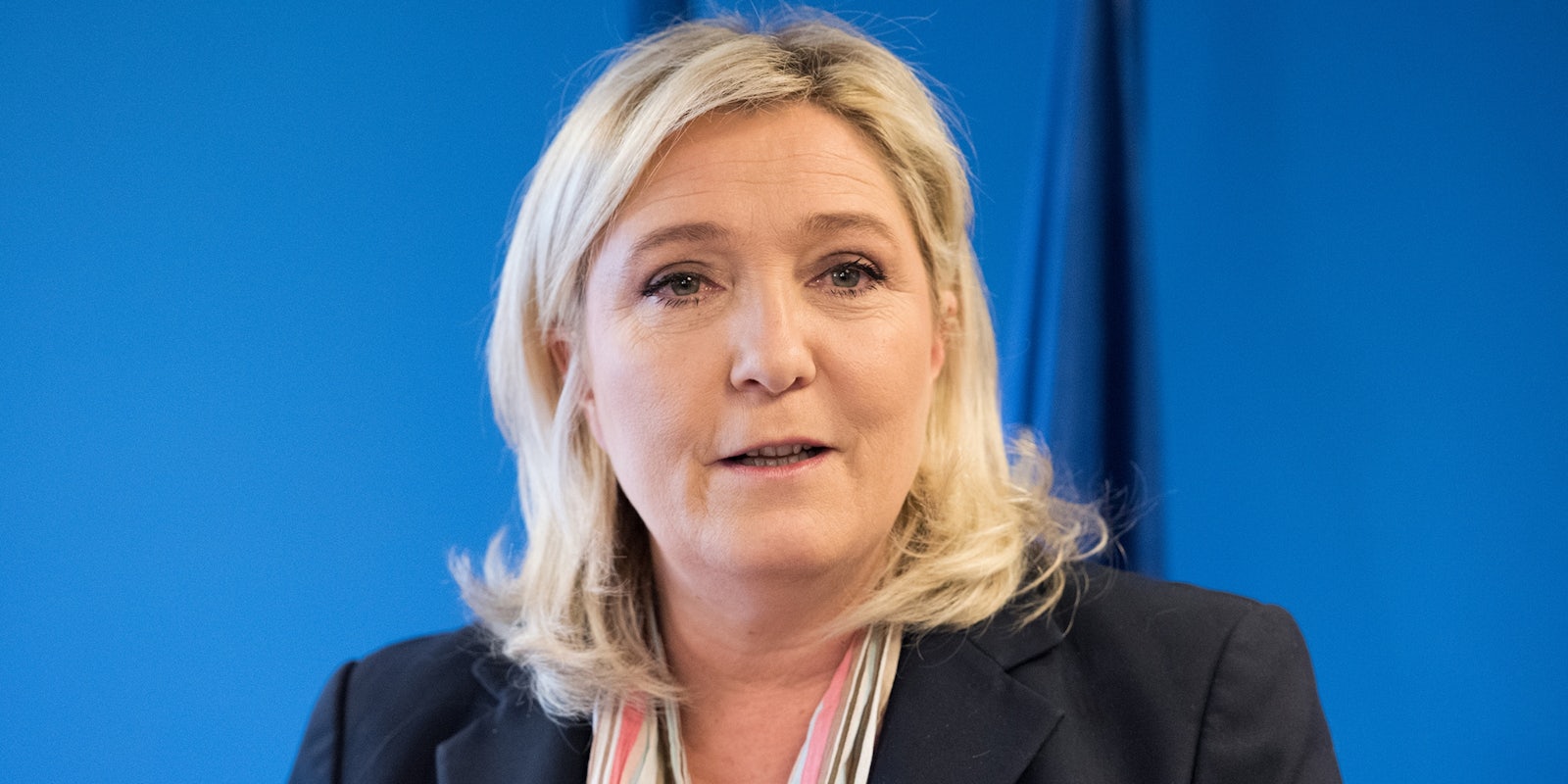Empowered by the surge of right-wing populism that rattled the U.S. election and the euro-skepticism that fueled the U.K.’s Brexit referendum, France’s Front National party leader Marine Le Pen has high hopes and a reasonable chance of becoming the country’s president next spring.
Le Pen leads the party that her father, an outspoken anti-Semite and racist, had run for decades. Although she has softened the rhetoric and sanitized the image of the Front National, much of its policies remain the same. The party adopts a protectionist economic stance, prioritizing French withdrawal from the European Union and its currency, and would aim to abandon multiculturalism by heavily curbing the rights and influx of immigrants.
The hardline nationalist supporters of the Front National aside, other conditions are lending to the party’s slowly growing voter base. France’s left-wing Socialist party left power without being able to lower the 10 percent unemployment rate. On top of that, the French people have suffered more attacks from Islamic terror cells than most western nations in recent years, from the massacre at Charlie Hebdo to the raid on the Eagles of Death Metal concert at Paris’ Bataclan. It’s consequential questions around national sovereignty, the economy, and cultural integration that have driven debate.
Le Pen took courage from Donald Trump’s electoral victory, hailing it as “the emergence of a new world”. In fact, across Europe the result was enthusiastically interpreted by far-right groups and extreme nationalist parties as a sign that their time has finally come.
CONGRATULATIONS @realDonaldTrump !!
— Geert Wilders (@geertwilderspvv) November 9, 2016
Your victory is historic and for all of us!#ElectionDay #MakeAmericaGreatAgain pic.twitter.com/jZRJNYtP1M
For the far-right the establishment has slipped. From Holland’s Party for Freedom right through to the Greek neo-nazi party Golden Dawn, this movement believes now is it’s chance to turn the globalist and multiculturally-driven political order on it’s head. Two big European elections before the end of the year in Italy and Austria will mark the first real test of the so-called “Trump-effect” in Europe.
Despite Le Pen’s adoration for Trump, opinion polls show the French people generally dislike him. Regardless, the far right has never been stronger and a Front National in France government would be firmly felt on the geopolitical stage.
Withdrawal of France from the European Union and the euro currency would have an enormous impact on the economic area’s stability, a shattering of the European project as dreamt up in the 1950s. The United Nations Security Council would also take an interesting shape, with two of the five nations resigned to populist leadership.
The French campaign cycle is now underway with the general election due next May. Last weekend the French centre-right primary contest, which was intended to select a strong conservative candidate that could counter Le Pen, saw the favored former president Nicolas Sarkozy crash out of the race for Republican nominee.
Instead, the poll was unexpectedly topped by François Fillon, an ex-prime minister who ended up with 44% of the vote. Fillon could win the Republican party’s nomination next week if he defeats Alain Juppé, who’d likely come in second. According to an Ifop-Fiducial poll forecast released on Wednesday, Fillon is likely best Juppé by an even wider margin come Sunday’s runoff vote.
Both Fillon and Juppé are establishment politicians, but clean-cut Fillon might just be moderate enough to appeal to a wider portion of the electorate, yet conservative enough on issues of national identity to defeat Le Pen. There’s a lot at stake and a long way to go.
“If Trump is possible, then everything is possible,” left-wing French philosopher Bernard-Henri Lévy warned the press. “Nothing, from now on, is unimaginable.”


